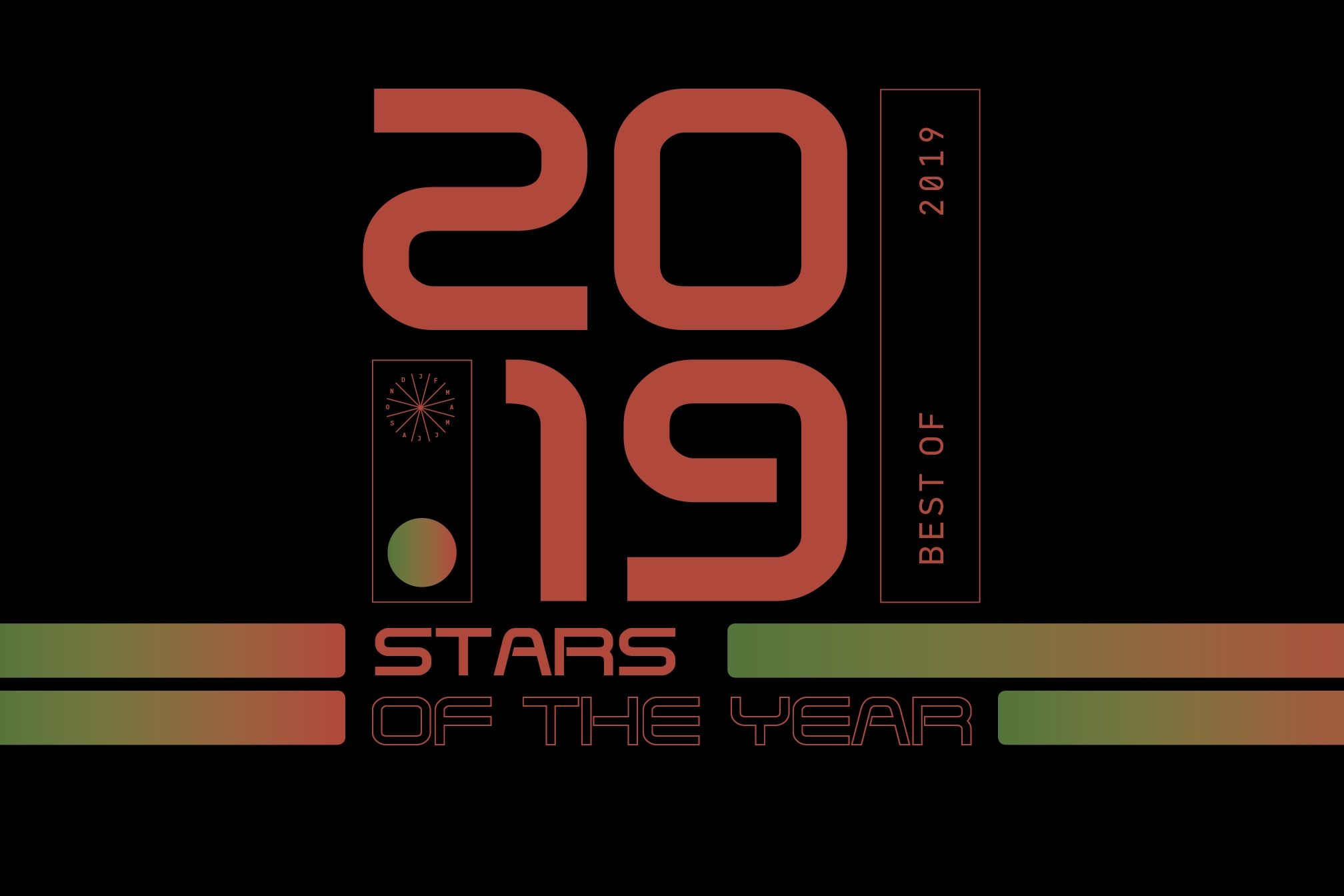 Features
Features
8 acts who defined 2019
2019's leading lights
From rap brilliance to disruptive industrial punk to groove-laden tech-house to blistering hardcore and much more, these are the artists who defined 2019.
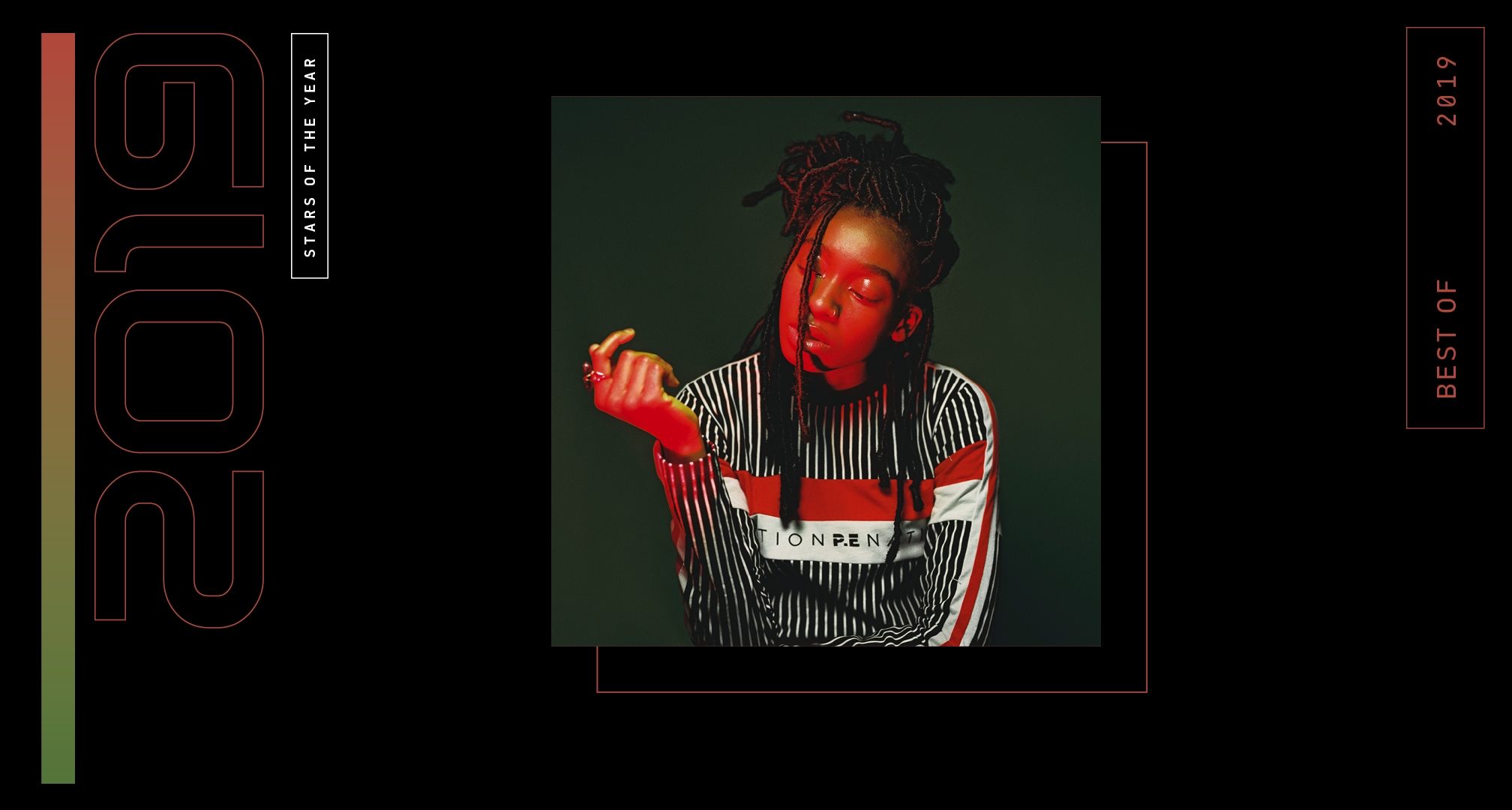
little simz
London lyricist and polymath with one of the biggest rap albums of the year
“I’m Jay-Z on a bad day, Shakespeare on my worst day” spits Simbi Ajikawo, aka Little Simz, on the opening track of her 2019 album ‘Grey Area’. While she might have kicked off the year with a brag, she’s closed it with a Mercury nomination, a BET award, sold-out shows and accolades that catapulted her from the hip hop underground to the worldwide masses.
High off the hype, Little Simz hit 2019 at a break-neck pace. A dancer, multi-instrumentalist and live performer with a blistering flow, she gave electrifying performances at Primavera to Coachella, Glastonbury to Berghain.
Flexing a dextrous skill set she landed a role in the Drake-produced Season 3 of Top Boy, shot the artwork for all 10 tracks off ‘Grey Area’ while finding time to record with Mike Skinner at Abbey Road and Micheal Kiwanuka, and lock down a Q-Tip collab. “I’m not a ‘female MC’,” she explains; “I’m an artist. I don’t put myself in a box. There are many mediums I move in and many I haven’t tried. But just know that whatever it is I create with next, I’ll do it to my best ability.”
Time spent exploring Little Simz’ back catalogue is time well spent. The North London artist penned her first rap at nine, dropped freestyles on pirate radio, made seven mixtapes, a handful of EPs and two albums all before her 25th birthday. And she went on tour with her idol Lauryn Hill, NAS and Gorillaz while clocking up co-signs from Kendrick Lamar. Not only that, she did it signed to her own imprint, AGE:101 Music.
Delivering poetic and politically-charged bars, she cemented her status as a formidable talent with her third album, her finest and most personal work, diving into topics many wouldn’t dare and flipping the script on bangers like ‘Wounds’, ‘Venom’, ‘101 FM’ and ‘Sherbet Sunset’ with defiant, punk rock energy and eloquence far beyond her years.
“I’m not trying to play a role or put on a front,” she says. “I’m 25, and I’m trying to figure it all out.”
Over the phone she tells us about a dream collab with André 3000 as well as new music inspired by Fela Kuti. Amid a packed tour schedule that shows no signs of slowing down, Little Simz takes a breath. “This year’s been a madness that’s only just started to sink in. Just know there’ll be a lot to come.” Tracy Kawalik
[Photo: Jack Bridgland]
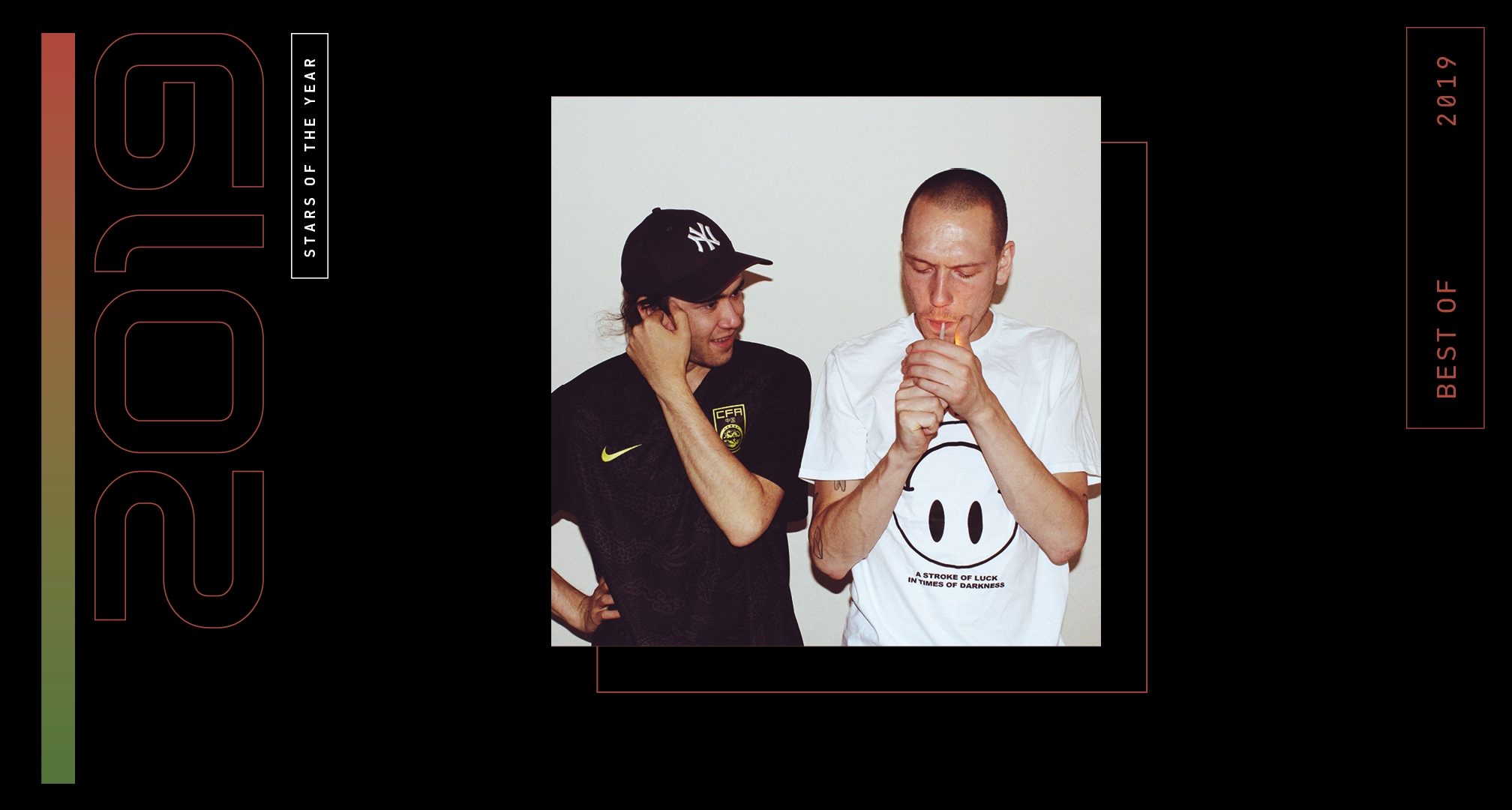
Giant Swan
True techno iconoclasts courting bare-chested devotion who came of age in 2019 with their debut album
Anyone lucky enough to go to a Giant Swan gig this year will have discovered a phenomenon peculiar to this dynamic Bristolian techno duo: the undress code.
In 2019, Harry Wright (29) and Robin Stewart (28) blazed their way across the world’s clubs and festivals, causing people of all genders to join Robin by stripping to the waist and losing themselves in the moment.
“We try to establish a halfway house between complicity and confrontation,” says Robin of their live experience, which sees the childhood friends facing each other across a desk of drum machines, effects pedals and modular synths. Cut-up guitars, brutal beats and hulking noise collide, creating a grinding uber-funk augmented by Robin’s roaring vocals (check the scabrous ‘55 Year Old Daughter’ for proof). Along with a dub influence, the energy of cutting-edge pop pokes through. They’re both fans of Charli XCX’s “absolutely insane” new album.
“We want it to be communal, powerful, loud and physical. We like playing at extreme volumes, more than most club systems are used to. Our message – if there is one – is that you’re allowed to lose yourself.”
“They’re special,” says Omar McCutcheon, aka Batu, founder of Timedance, which released a single of theirs two years ago. “There’s something so honest about their music, an infectious energy – you can’t help but feel a connection. Right now, I don’t think there’s another act in electronic music like them.”
Whities boss Nic Tasker is similarly effusive. “They get the crowd on their side in the first few minutes,” he says. “It creates an instant feeling of togetherness, helping break down social barriers. Everyone feels invested.”
This visceral, all-inclusive approach has served Giant Swan well in a year book-ended by the recording and release of their self-titled debut album. Between it all they’ve made steps that should take them from underground heroes to festival essentials, while in May they supported childhood heroes, The Horrors, at the Royal Albert Hall.
“It’s been turbulent – and not just the flights,” says Harry. “The humbling part has been meeting so many people.”
And their vision for 2020? “More of everything,” predicts Robin. “Lots of touring. More records. And sleep.” Stephen Worthy
Giant Swan’s debut album is out now on KECK
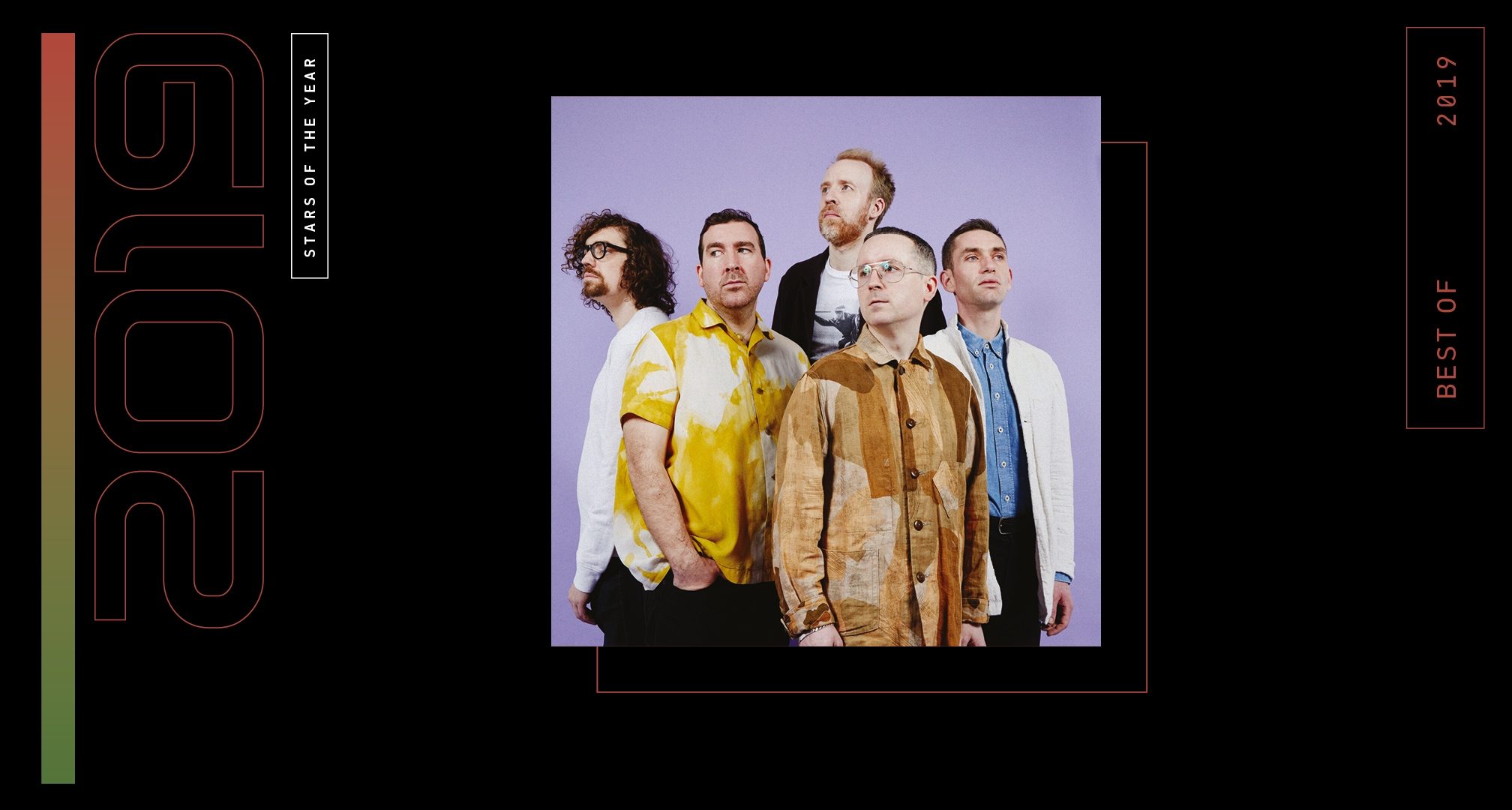
Hot Chip
Fifteen years after the release of their debut, Hot Chip could well be hitting a career high
Hot Chip have had a sensational year. Their seventh album, ‘A Bath Full Of Ecstasy’, picked up some of the best reviews of their career. Their current tour has taken in everywhere from Alexandra Palace in the UK (“our biggest UK gig yet”) to America and Mexico and, when we speak to Joe Goddard, Guatemala.
“We’ve been having a fantastic time,” says Joe Goddard down the line, a few hours before yet another big show. “We feel really confident [with the live show] and the crowds have been amazing.”
Yet while the euphoric atmosphere of their current tour and critical and commercial success of the lead singles (‘Hungry Child’ and the irresistible ‘Melody Of Love’) has been cause for celebration, the album release period was also tinged with sadness: the day before the album dropped, the record’s main producer, Philippe Zdar of Cassius, died suddenly in Paris. Everyone in the band was in a state of shock. “Phillipe was passionate, warm and excitable,” remembers Joe. “He created an atmosphere where you felt comfortable and able to express your ideas, as well as making whiskey sours at six in the evening!
His passion for music and life made you feel positive and welcome. He really helped us to have the confidence to do what we were doing. We made a real new friend, and everyone who went to his studio had the same experience.”
Zdar’s plush home at Motorbass Studio near Pigalle played host to everyone from The Beastie Boys to Phoenix over the years, and Joe says Zdar’s family want to ensure that Parisian musical tradition continues. “He became life-long friends with the Beastie Boys because he was a genuine, honest person. The release was bittersweet. We heard the news the day before the record came out and we had a lot of experiences of playing on stage thinking about him. You know, when a friend passes away, you have moments of sadness that it can come on at any moment. We would play ‘Spell’ [from the new album] and remember the session and then remember that this person had gone from the world. It was painful for everybody.” Did the success of the album help heal that wound? “I’m just so pleased we got to work with him. It was a life-changing experience for us. He had such good faith in good music.”
And that faith has now taken Hot Chip to higher heights than ever before.Joe says some of these highs include drinking on the canal in Xochimilco, Mexico City while mariachi bands on other boats serenaded them; getting caught in a typhoon in Shibuya and watching “grown-ass men” moshing to their cover of ‘Sabotage’ by The Beastie Boys.
“This is some of the best music we’ve ever made, and we’re so happy with how things are going,” says Joe. “It’s easy to be disillusioned at this stage of your career, but we’re still very happy making music. Life is good!” Ralph Moore
[Photo: Ronald Dick]
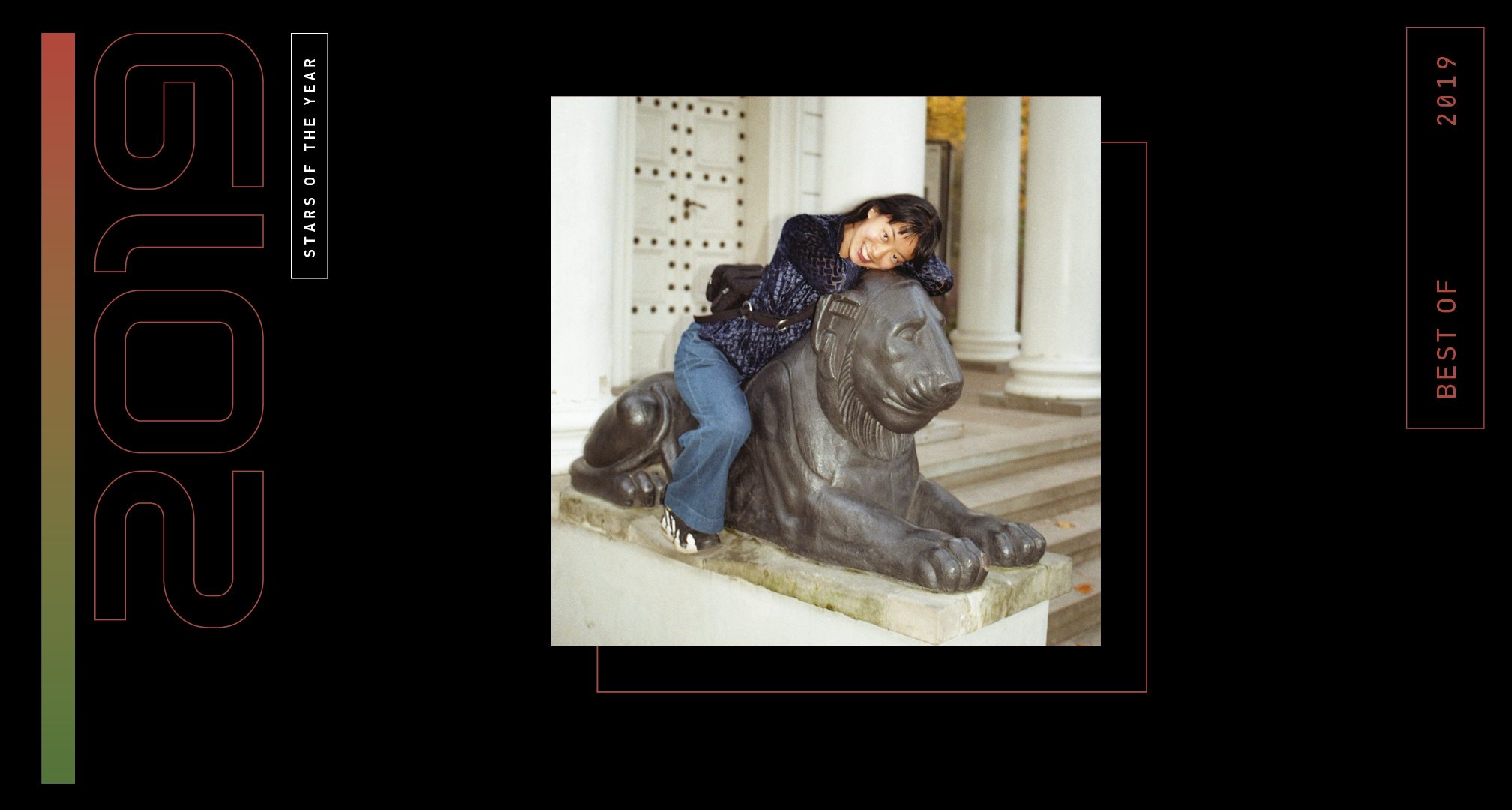
object blue
The captivating Tokyo-born London-based DJ and producer
object blue likes her perfume like she likes her music: “weird and head-turning”.
“If I wasn’t making music, I’d be making perfumes,” she tells us. Her favourite is Bat by Zoologist: “It smells like really pure, intense mud,”she says. “I was disgusted that it got discontinued” – but blue’s scent is not the only thing that’s changed this year.
Following a strong 2018, blue has cemented herself as one of London’s most bold, unrelentingly experimental electronic artists, becoming a fixture on UK airwaves and line-ups but also further afield, across Europe. In 2019 she also toured Asia, soundtracked Vivienne Westwood’s SS20 show, tied the knot and a day after, on August 16th, released ‘Figure Beside Me’, her most personal body of work to date and a two-track ode to love. It’s an amalgamation of emotion where rugged techno meshes with celestial, delicate electronics, wandering away from dance music and into sound design that creates almost tangible textures.
‘Figure Beside Me’ was brought into the physical realm via a one-off AV live show at Simple Things in Bristol at which blue collaborated with her wife, visual artists Natalia Podgorska. “That was months of hard work. And to have it finally realised...I was so proud of myself and my wife,” she says. Not bad for someone whose only resolution at the start of 2019 was “to just ‘finish ‘Figure Beside Me’.”
“I haven’t done anything differently,” she reflects. “I’m lucky to have a small but committed group of really passionate fans.”
But with a rapidly growing public profile blue has had to deal with the pitfalls of social media. “Something that I found really weird this year was being embroiled in Twitter fights,” she says. “I’m not used to a bunch of people responding to my stuff with such speed.”
Spending less time on her socials, blue has rediscovered her love of literature. “When you read fiction there’s this other world that you can step into. And if you’re constantly on the move it really helps to have a place that you can go back to.I’m on the fourth and final book of the Neapolitan Quartet by Elena Ferrante, and I’m going to be sad to finish it. It’s been so important for my self-esteem and sanity to read long prose again.”
Having already contributed to a Nervous Horizon compilation this year, blue is keen to continue collaborating with London labels in 2020 – with a new release due in February/ March on a new underground label. Geralda Cela
Object Blue plays Cotton, Manchester on Friday January 31
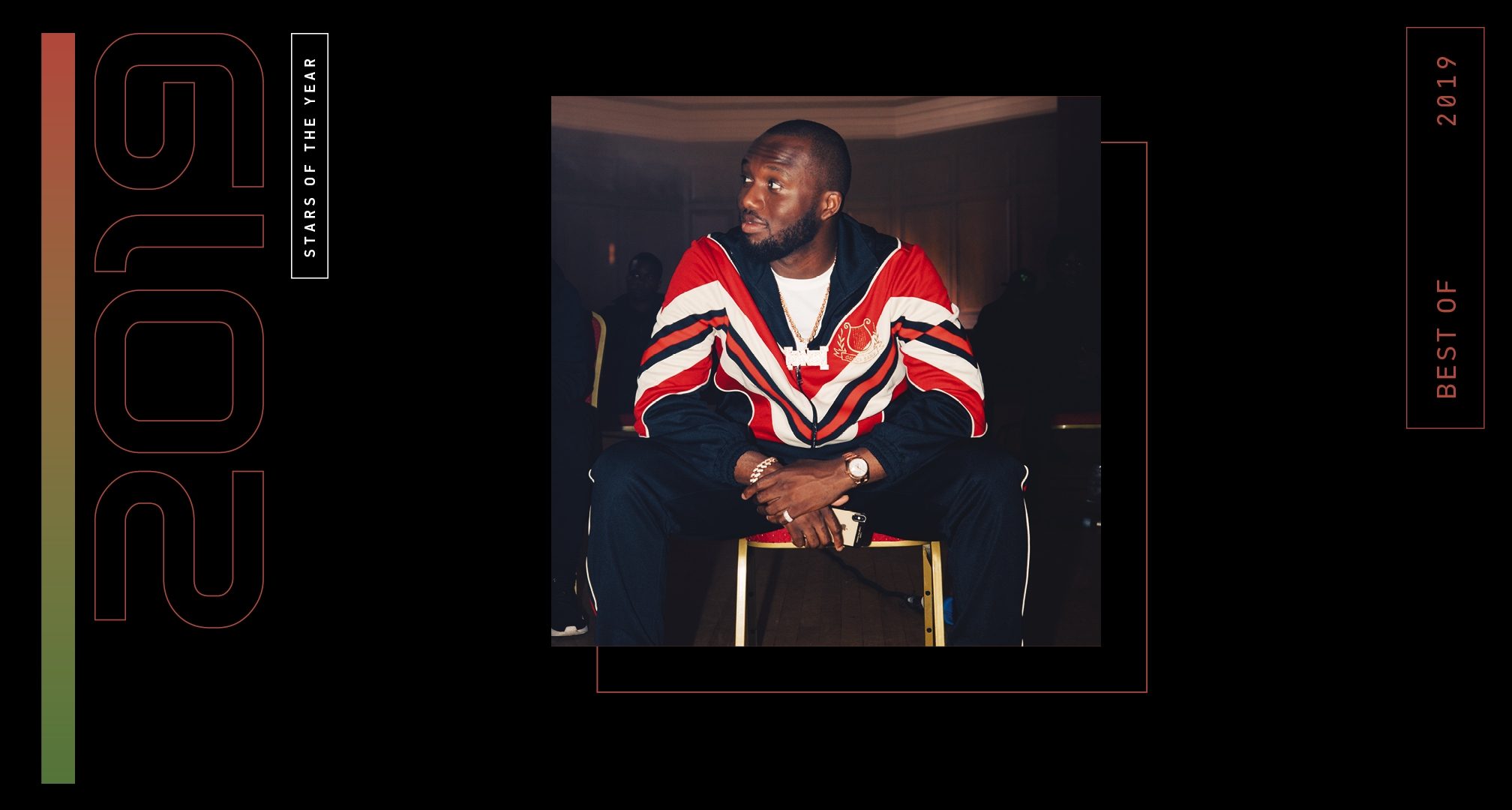
Headie One
Breakout drill artist who dominated 2019 with witty wordplay and impeccable beat choices
“From the first week of 2019 it’s been high tempo – it’s been great, almost too eventful...!”
Rapper Headie One isn’t one for exaggeration. Today, on his way to shoot some footage for the UKs dominant urban channel GRM Daily, he’s in a relatively effusive mood. If Headie says the year was high-tempo, you know it must‘ve been wild.
The records bear him out. Kicking off the year with ‘18 Hunna’, his collab with Dave that was released on the third of January and tore straight into the Top 40, Headie hasn’t let up since. By and large, he’s let the music do the talking. Notoriously guarded to the point where his non-responses to repeated questions about his chequered past (“I can’t really say much on that, it’s a bit of a sticky one still”) have become a comedy UK meme, shorthand for whenever someone wants to duck an awkward question. But what he’s kept back in interviews he’s put down on tracks. Headie’s release schedule – two major mixtapes in the last 12 months plus numerous singles and remixes – is the kind of work rate those with writer’s block can only dream of.
The follow-up to ‘18 Hunna’, ‘Drillers x Trappers II’ came swiftly after his early chart success. Recorded with long-time collaborator and fellow Tottenham resident RV, the sequel to their legendary 2017 mixtape cemented the duo’s status amongst the drill faithful and memorably gave us the ‘Match Day’ video, Headie and RV dressed up as TV pundits delivering bars that retold London’s street warfare as a series of football metaphors.
But it was his 2019 solo release, ‘Music x Road’, that enabled Headie to manage the trickiest of transitions, shifting from being the hotly tipped breakout star of a genre dogged by controversy and draconian policing to an artist who could fuse underground credibility with increasingly high production values. With hits such as ‘Both’ flipping Ultra Naté’s handbag house classic ‘Free’ into a rap anthem, he managed to inject mainstream aesthetics into drill’s DNA without losing his edge – or his fanbase. Now 20 million+ streams deep, ‘Both’ is proof (if any were needed) that drill has become the sound of a generation, something the sold-out UK tour that followed confirmed.
Headie himself is keen to evade pigeonholes. While he may have come up riding spartan 140BPM beats characterised by swooping 808 bass, he’s never shied away from change. “I do whatever feels right first,” he tells us. “I don’t have any barriers. Any sound, any tempo: I just do what I feel.” With that attitude, and his ferocious work-rate, it’s likely that 2020 will be as much Headie’s year as 2019 was. He’s certainly not scared of the challenge. “In any genre, there’s gonna be hurdles, I expect hurdles,” he muses. “I feel like I’ve been clearing all of them.” Ian Mcquaid
[Photo: James Barber]
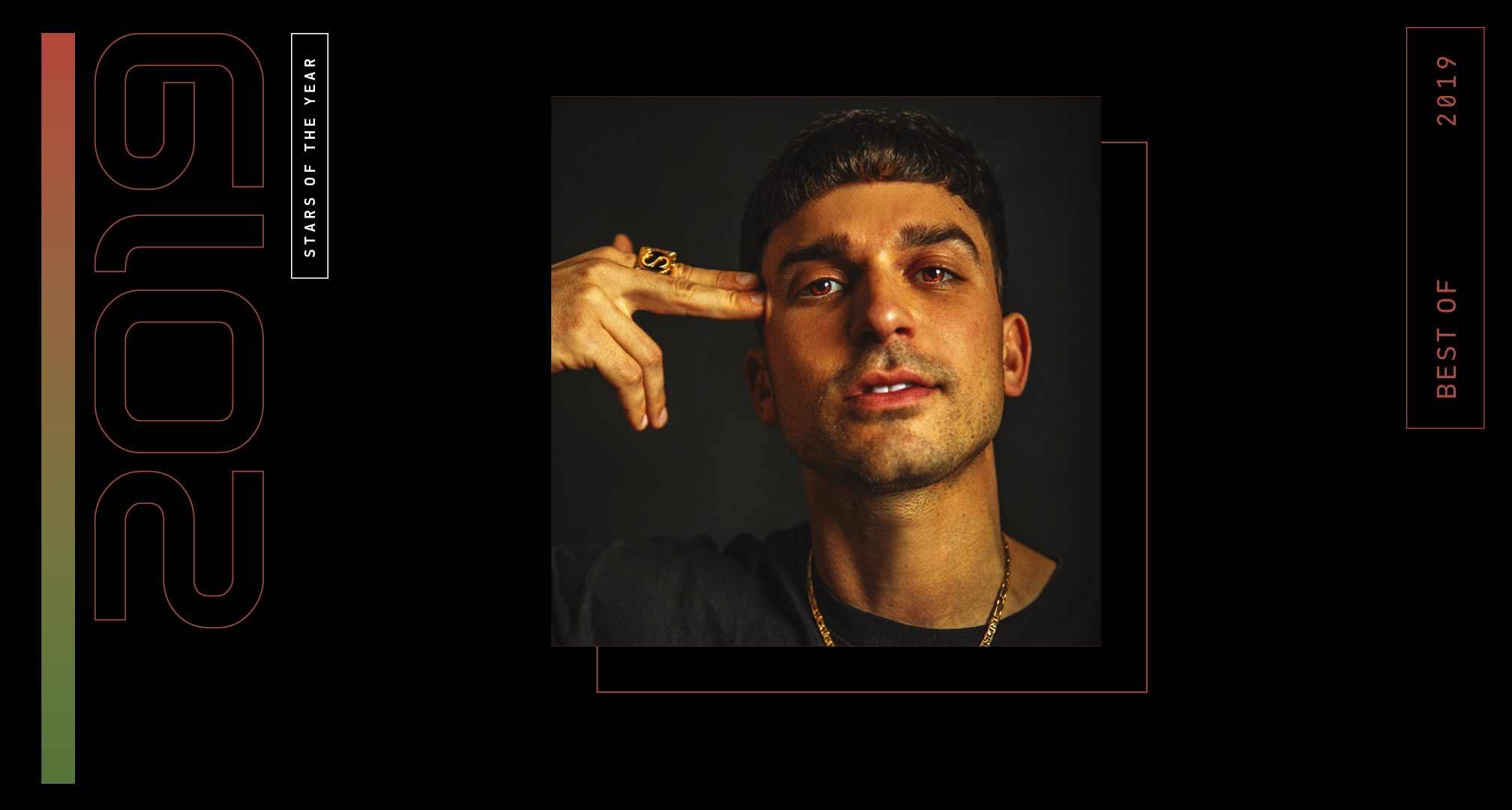
Michael Bibi
The London DJ with a solid groove who became a superstar in 2019
Not many success stories begin with a burst water pipe, but for London’s Michael Bibi it kicked off a series of events that saw him become one of the world’s most in-demand DJs. Back in October 2018, Bibi’s biggest release to date, ‘Hanging Tree’, was about to drop and Solid Grooves, the brand he’d built over seven years, was hosting a sold-out party at London’s cavernous Printworks.
“It was the perfect storm,” recalls Bibi. “Everything was aligned and it felt like this was the biggest moment in my career.” But half an hour before his set, sitting alone in the green room, something strange happened. “The walls were vibrating, ‘thud, thud, thud’ with the music. Then all of a sudden it went quiet. I figured it was an extended breakdown, but it just kept going. Then [fellow DJ] Reelow burst through the door and said; ‘It’s all over mate’. I could see in his face it was true – he was white as a sheet.”
In the main room, chaos was unfolding: “The water was up to my ankles, the lights were up, sparks were coming out of the sound desk”. As water flooded the venue, disappointment flooded the DJ. Many in that position would reach for their rider, but Bibi took his frustration out on the decks. “There was an afterparty at Phonox and a whole bunch of us were supposed to play, but when I got on the decks I just said, “Sorry guys, I’m not coming off”. I had so much pent-up emotion I needed to get out”.
That night Bibi played a six-hour marathon taking in the full breadth of his musical taste. Over the following days, messages came flooding in, begging him to do another headline show. As luck would have it, Michael chanced upon the aptly-named Leake Street Tunnel, a single-room venue underneath Waterloo Station. When he announced the one-off all-night show, it crashed Resident Advisor, selling out in 15 seconds. A second date did the same – that’s four thousand tickets in 30 seconds.
Since then it’s been pretty non-stop for Bibi and his particular brand of deep and groovy tech-house. With tracks like Skream collab ‘Otto’s Chant’ clocking up well over a million plays on Spotify and regular slots at Elrow alongside hosting a Solid Groove residency at Privilege, he’s hardly had time to stop and think, let alone chill at home with a box set. “In the past six months I’ve slept in my house maybe five times,” he tells us down the phone from the Dominican Republic. It’s been a steep learning curve – not least for someone used to treating his studio as a nine-to-five. “For the first month of working on the road, I couldn’t finish anything, and if I don’t make at least one tune a week I get frustrated.
Talking to him now, though, it’s clear he’s found his groove; “I get inspired by the snippets of music I catch from cities around the world. After years of studio monitors, now I know if a track sounds good on my Beats Pill, it’ll work in the club!” Matthew Francey
Michael Bibi will finish 2019 with an end-of-year bash at Tobacco Docks with Loco Dice
[Photo: Haris Nukem]
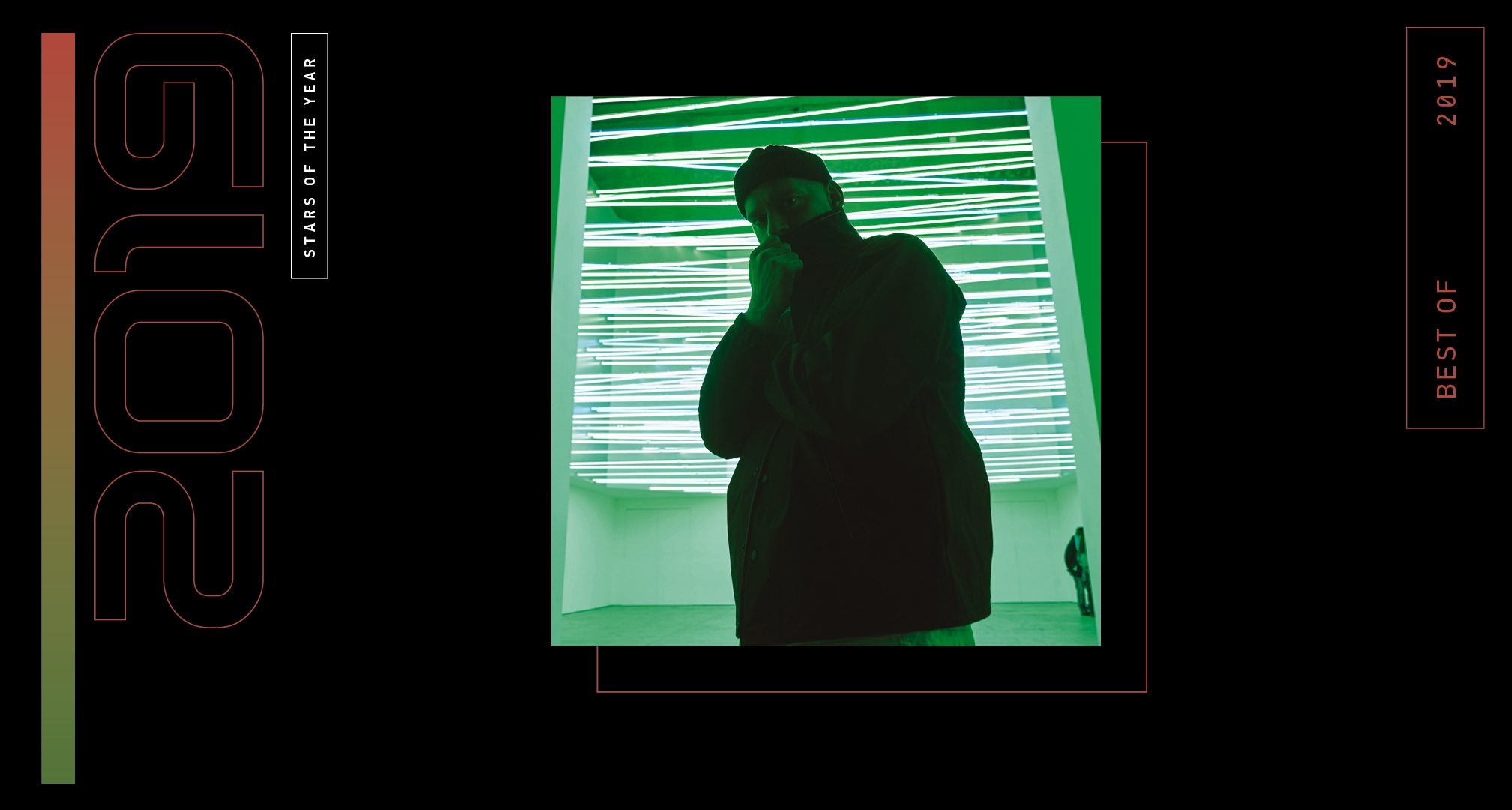
Gabber Eleganza
The Italian rave archivist promoting a ‘Never Sleep’ mentality
Gabber is back (with an ‘er’ this time) and it’s the genre, subculture and visual aesthetic of choice for a generation of ravers drawn to harder, faster music and messages that push back against the turbulent times we face today.
“It’s a normal reply to the craziness,” says Italian hardcore enthusiast Alberto Guerrini. “The youth want to escape in the most aggressive way possible.”
Guerrini’s one of the names at the heart of this musical movement. He’s had a successful year between launching a label (Never Sleep), collaborating with artist Mark Leckey and photographer Ewen Spencer on a book (Hardcore Soul), with a mix and festival bookings (both alone, as a DJ or with his troupe of dancers, for one of his riotous ‘Hakke Show’ parties) thrown in for good measure. Other highlights include first-time trips to Australia and Russia, gigs at Flow Festival (“on a queer stage with a lot of transgender performers mixing with the Hakke Show dancers – it was incredible!”), Horst Arts & Music (“It was so sweaty but outside it was cold – there are pictures of the dancers with steam coming from their bodies!”) and Heart of Noise in Innsbruck. “The curator told me they booked us as a political reply to the council,” says Guerrini. “The council want to stop the festival because it’s too progressive and the theatre [where the festival takes place] is only for classical music. So, the curator said: ‘We want to book you to say a big fuck you.”
That’s not forgetting his Berghain night this autumn, at which Never Sleep partnered with local collective Janus. “It was a good mix of people, but it was strange because Panorama Bar was Cadenza with Luciano,” he says. “I really like that kind of sound clash. Maybe someone who came for that, who’s listened to tech-house for ten years, discovers one track by me or someone like me and you never know… one track can change your life!”
That’s not to say Guerrini isn’t a local now, too. He moved to Berlin last year and has spent his time rediscovering passions both in and away from music. He’s into film again these days, running too, plus trips to museums and lots of reading. “Art books, photography books, novels and non-fiction have helped me a lot,” he says. “And, of course, being outside and going to concerts are still the best things to do to feel inspired.”
In spring 2020 Never Sleep will put out its first 12”. “It’s from a London guy with Brazilian roots,” says Guerrini. “I want to drop three or four more releases as well, plus do more event curating.” Looks like the hardcore renaissance is set to continue. Jasmine Kent-Smith
[Photo: paolostroppa.com]
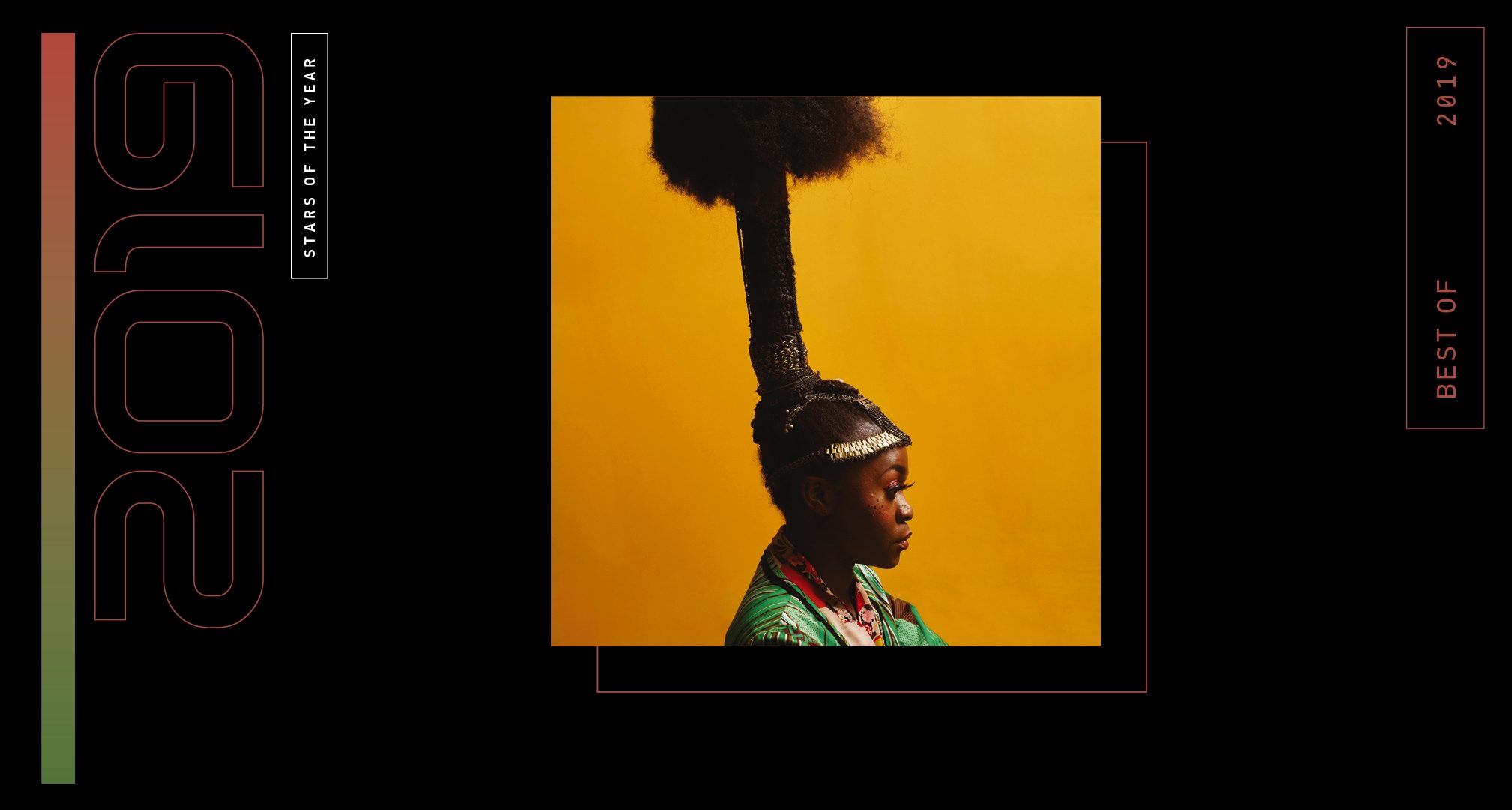
Sampa The Great
Zambia-born rapper and singer who returned to her roots
“Where my black queens at?” Sampa The Great is headlining a sold-out show at London’s XOYO – and she wants the black women in the audience to respond loud, and let her know where they are.
The Zambia-born, Aus-based rapper and singer’s request comes as no shock. Chants of ‘black power’ appear in ‘Final Form’, a big band-powered wrecking ball from her debut album ‘The Return’, out last September on Ninja Tune. The words ‘black power’ have come to mean more to Sampa in 2019 than they did before: “It’s about fully accepting and embracing where you’re from. Black power is the power that comes from loving who you are.”
‘The Return’ is a story of her African heritage, touching on themes of the immigrant experience, self-acceptance, displacement and identity among energetic hip hop, soul, jazz and r’n’b. Her mum and dad even appear in the video for ‘OMG’, which was filmed in Botswana. “To have them in this story and the narrative I was creating for myself was pivotal,” she tells us during a break in rehearsals for her European tour.
As a Zambian whose career began in Australia, Sampa feels her African heritage was blurred out in narratives by the media. She’s taken it on herself to rewrite this, true to her roots.
“To be based in Australia doesn’t mean I don’t have origins in other places,” she says. “I’d never shown people what Zambia is or where I was raised. [The album] felt like a completion. I’ve shown me where home is.”
She’s ticked off a bunch of career milestones in 2019, from meeting her hero Lauryn Hill and playing Glastonbury to appearing on Later With...Jools Holland and winning Australian Artist of the Year at Aussie radio station Triple J’s J Awards. Nothing beats returning to Zambia to play her first show on the subcontinent, though.
“In every sense of the word, it made me feel whole. My family – besides my younger sister Mwanje – had never seen me perform. To have them singing the lyrics was insane. It cemented something within me.”
This year is gearing up to be just as hectic as last as she joins Yasiin Bey, aka Mos Def, The Pharcyde, Talib Kweli and Wu-Tang Clan’s GZA for Beat Horizon festival in January – all hip hop artists with the kind of royal status Sampa’s well on her way to earning, too. Dave Turner
Sampa The Great plays Brixton Academy on January 18
[Photo: Barun Chatterjee]


